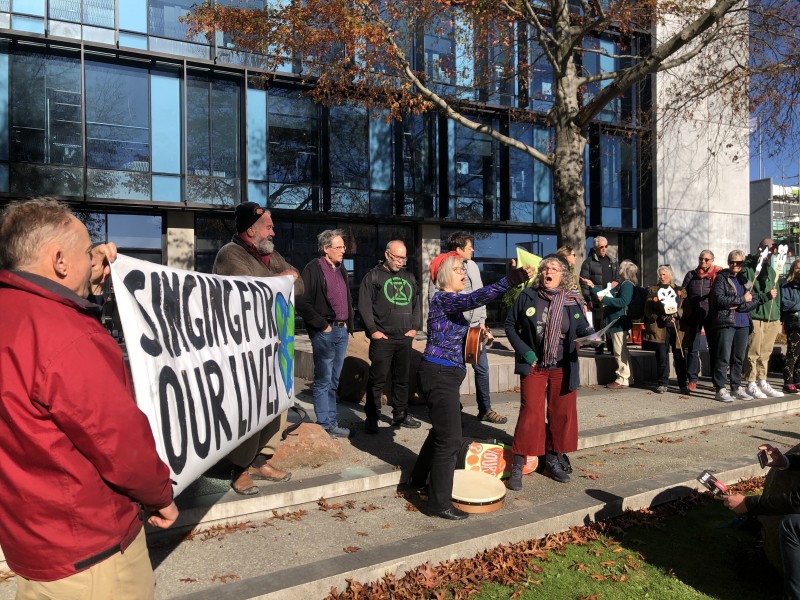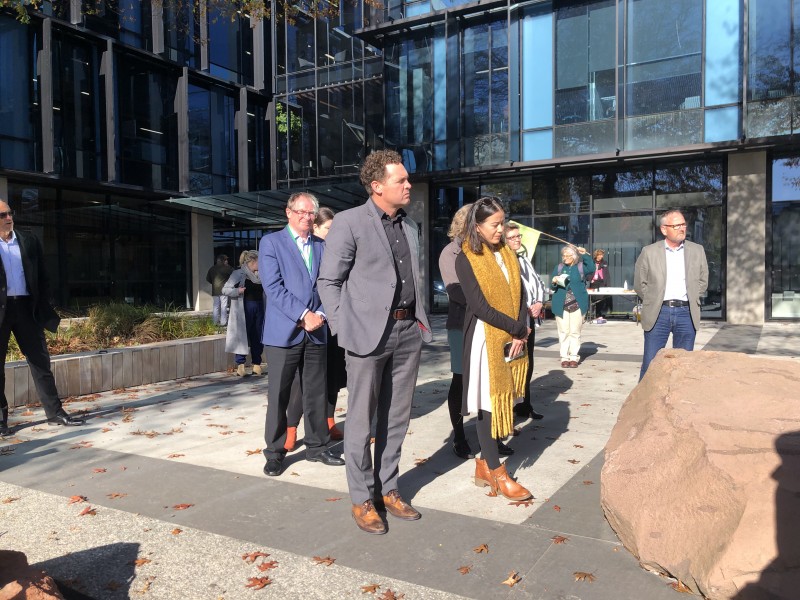Regional Forest & Bird conservation manager, Nicky Snoyink, said not only would she love ECan to bring democracy back to its processes, but also to think a lot more long-term and create a system that is climate friendly, restores fresh water, and works with nature.
However, the greatest concerns were related to both environmental and public health risks, many fearing the scheme could increase river and farm nitrate levels and in turn affect Canterbury's freshwater systems.
Jen Dispar, community member of the Ashburton-Hinds zone committee, said the Hinds River was averaging under the current limits, but in some places, it was way over.
"The risk to ecology in rivers is really high and at high rates for nitrates. There are health risks for humans which although there isn't a direct causal link that's been proven, we ought to be using the precautionary measures in case it is a direct cause to bowel cancer."
Dr Peter Richardson from AWA said he had seen the damage from nitrate first hand.
"Myself and another member of the federation visited the Hinds River, did some nitrate testing, and saw the sorry state of the Hinds River. To think that we're going to roll it over without question, given the present state, for another 10 years is unacceptable really."
He said the river was once a very useful, productive little fishery to take new fishermen to learn how to catch trout, but it was now completely shattered.



